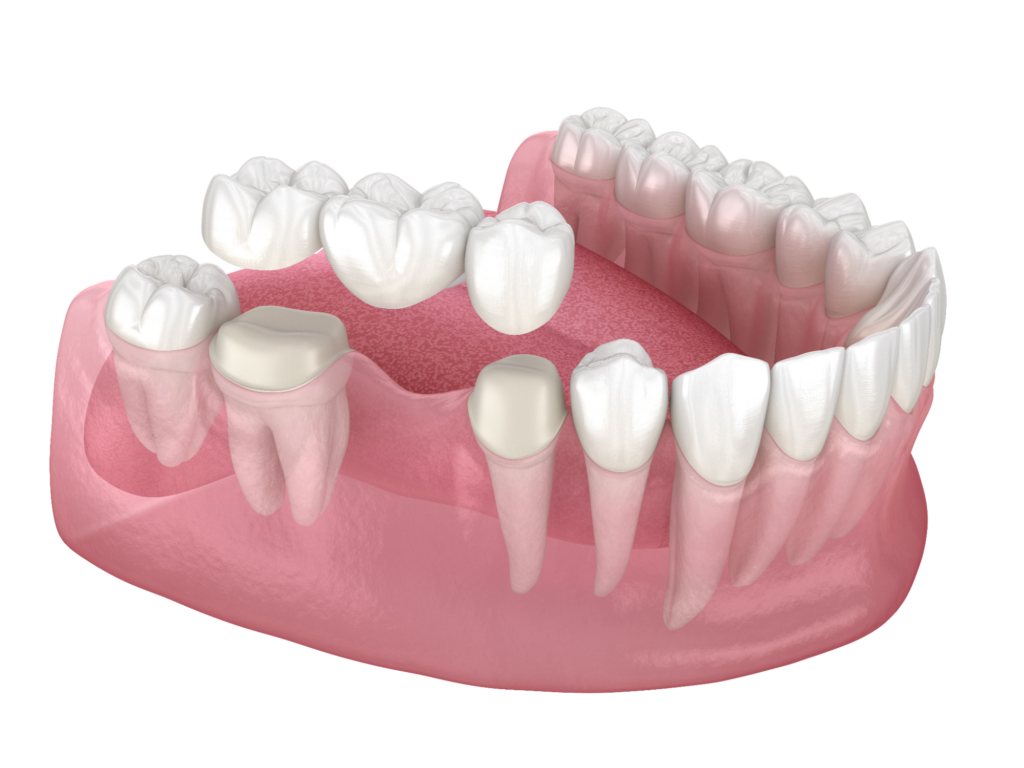Have you ever wondered why some people have perfectly healthy teeth while others struggle with cavities and tooth decay? It all comes down to the strength of your teeth. If you are dealing with weak teeth, it is crucial to understand the underlying causes, symptoms and appropriate treatment options in order to protect your dental health. We’ll cover everything you need to know in this blog.
Symptoms of Weak Teeth
When you have weak teeth, there are a variety of symptoms that you may experience. We’ll explore the most common weak teeth symptoms and what they could mean for your oral health.
Tooth Sensitivity
You may notice that your teeth feel painful or sensitive when you eat or drink hot, cold, sweet, or acidic foods and drinks. It can be a sign that your tooth enamel has become worn down, exposing the sensitive inner layers of your teeth.
Discolouration
Weak teeth can also cause discolouration or yellowing of your teeth. This may be due to the erosion of tooth enamel, exposing the underlying layer of dentin that is naturally yellow. In some cases, weakened teeth may also be more susceptible to staining from foods, drinks, and tobacco use.
Toothache
If you have weak teeth, they may become more vulnerable to decay-causing bacteria that can penetrate the tooth and lead to infection or damage to the nerve inside the tooth, resulting in toothaches or sharp, intense pain.
Gum inflammation
When your teeth are weak, they can be more susceptible to bacteria buildup and may lead to the development of plaque on the teeth and along the gum line. Over time, the bacteria in plaque can cause inflammation of the gums, making them red, swollen and tender. Additionally, weakened teeth may not offer proper support for the gums, contributing to gum inflammation and disease.
Causes of Weak Teeth
While everyone strives for strong and healthy teeth, various factors can contribute to weak teeth. Some of these factors are beyond your control, such as genetics and medical conditions, while others are directly related to your daily habits and lifestyle choices.
Genetics
Your genes can play a role in the strength of your teeth. Some people are born with genetically weak teeth and have thinner or softer enamel, which makes their teeth more susceptible to damage and decay. Enamel hypoplasia is one such condition in which the enamel development is thinner than normal, leading to weakened teeth.
Poor dental hygiene
Failure to brush and floss regularly can lead to the buildup of plaque and tartar, which can cause tooth decay and weaken your teeth over time. In addition, avoiding regular dental checkups can lead to undiagnosed dental issues that can worsen the condition of your teeth over time.
Diet
Your choice of food can also significantly impact the strength of your teeth. A diet high in sugar and carbohydrates can lead to increased growth of harmful bacteria in your mouth, which can cause tooth decay and weaken your teeth over time. In addition, a lack of essential nutrients like calcium, vitamin D, and phosphorus can also make teeth brittle.
Medical conditions
Certain medical conditions, such as acid reflux, eating disorders, and autoimmune diseases, can cause damage to your teeth and weaken them over time. The use of medications that dry out your mouth or cause changes in saliva production can also contribute to weaker teeth.
Teeth Grinding
Teeth grinding or bruxism can also lead to weak teeth, as the constant pressure and friction can wear down tooth enamel and cause chips or cracks to form.
Treatment of Weak Teeth
Now that we have discussed the symptoms and causes of weak teeth, it’s time to explore the possible treatment options to help strengthen your teeth and protect your dental health.
Dental fillings
If you have a cavity or a small area of decay, your dentist may recommend a dental filling to restore the tooth. During the procedure, the decayed portion of the tooth is removed and replaced with filling material, such as composite resin or amalgam. It can help prevent further decay and strengthen the tooth.
Dental crowns
A dental crown may be recommended if you have a weak or damaged tooth that cannot be restored with a filling. It is a custom-made cap that fits over the entire tooth, providing long-term protection and support. It can be made of various materials, such as porcelain or metal, and is cemented into place by your dentist.
Root canal treatment
When the nerve inside a tooth becomes infected or damaged, a root canal treatment may be necessary. During this procedure, the damaged nerve tissue is removed, and the inside of the tooth is sterilised and sealed. This procedure can save a damaged or weakened tooth from extraction and prevent further damage or infection.
Tooth extraction
Tooth extraction may be necessary if the tooth is severely decayed and cannot be saved with medication or root canal treatment or if it poses a risk to other teeth or your overall oral health. After the tooth is extracted, your dentist may recommend a replacement option, such as a dental implant or a bridge.
It’s important to note that the best course of treatment will vary based on your specific needs and dental health condition and should be determined in consultation with your dentist.
Looking for a Solution to Your Weak Teeth?
At The Dental Family Beaumaris, our friendly Bayside dentists offer a range of treatments to help strengthen and protect your teeth, from preventative to restorative and reactive procedures, to ensure you have a lifetime of healthy, beautiful smiles. With our state-of-the-art technology and compassionate approach, you can feel confident that you’re receiving the highest level of dental care. Therefore, if you’re looking for a solution to your weak teeth, feel free to schedule a consultation with us so that together we can work on achieving your healthy smile goals.


